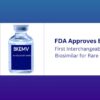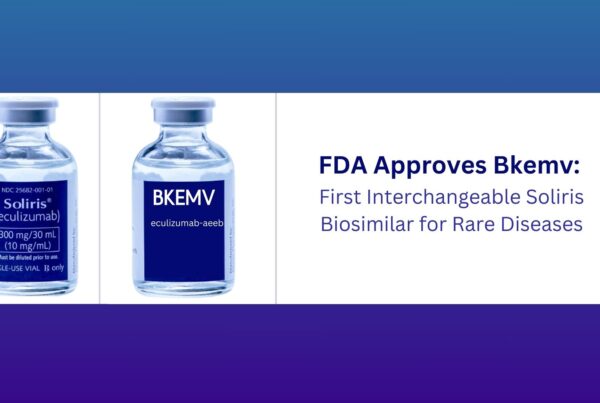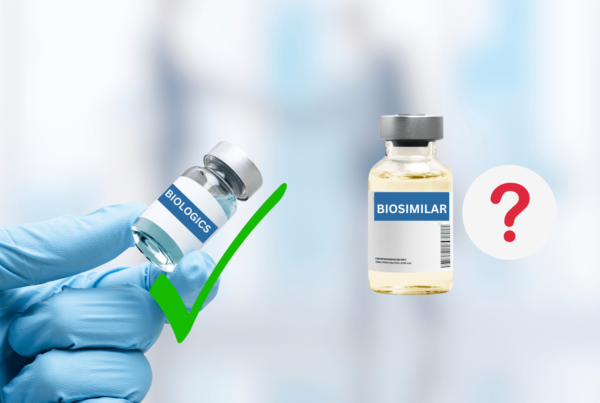We’re thrilled to share groundbreaking news in the realm of oncology:
On November 16, 2023, the US Food and Drug Administration (FDA) approved enzalutamide (Xtandi, Astellas Pharma US, Inc.) to address non-metastatic castration-sensitive prostate cancer (nmCSPC) with biochemical recurrence at high risk for metastasis.
Key Highlights from the EMBARK Study:
- The approval is based on the outcomes of EMBARK (NCT02319837), a randomized, controlled clinical study involving 1068 patients with nmCSPC and high risk for metastasis.
- Patients, who had prior definitive therapy, were randomized into three arms: blinded enzalutamide 160 mg once daily plus leuprolide, open-label enzalutamide monotherapy 160 mg once daily, or blinded placebo once daily plus leuprolide.
- The primary efficacy measure, metastasis-free survival (MFS), showcased a statistically significant improvement for enzalutamide plus leuprolide compared to placebo plus leuprolide (HR 0.42, 95% CI 0.30, 0.61; p-value < 0.0001).
- Enzalutamide monotherapy also demonstrated a significant improvement in MFS compared to placebo plus leuprolide (HR 0.63, 95% CI 0.46, 0.87; p-value = 0.0049).
- Overall survival (OS) data are pending, with 12% deaths in the overall population at the time of MFS analysis.
Treatment Recommendations:
Enzalutamide is prescribed at a daily oral dose of 160 mg, to be taken with or without food, until disease progression or unacceptable toxicity. Administration can occur with or without a Gonadotropin-Releasing Hormone (GnRH) analog. In cases where Prostate-specific Antigen (PSA) becomes undetectable (< 0.2 ng/mL) after 36 weeks, treatment may be temporarily suspended.
Resumption is recommended upon PSA levels increasing to ≥ 2.0 ng/mL (for those with a history of radical prostatectomy) or ≥ 5.0 ng/mL (for individuals with a history of primary radiation therapy). This tailored approach ensures a balance between treatment efficacy and patient well-being.
Global Collaboration and Regulatory Process:
- This review was conducted under Project Orbis, a collaborative initiative involving the FDA, Health Canada, and Swissmedic for concurrent submission and review of oncology drugs globally.
- The Real-Time Oncology Review pilot program expedited the approval process, leading to FDA approval 5 weeks ahead of schedule.
Expedited Recognition and Global Scrutiny:
Enzalutamide’s application gained momentum with its Fast Track Designation and subsequent priority review, underscoring the critical nature and substantial impact of this therapeutic advancement. Currently, regulatory bodies across the globe are actively assessing the application, amplifying the potential international influence of enzalutamide in non-metastatic castration-sensitive prostate cancer (nmCSPC).
Patient Advocacy and Impact:
Patient advocacy organizations, such as ZERO Prostate Cancer, recognize the emotional impact of disease recurrence and welcome enzalutamide as a promising treatment option for patients and caregivers.
A Closer Look at EMBARK Trial Data:
- Data from the phase 3 EMBARK trial demonstrated a 58% reduction in the risk of metastasis or death with enzalutamide plus leuprolide compared to leuprolide plus placebo (HR 0.42; 95% CI, 0.30-0.61; P < .0001).
- Enzalutamide monotherapy showed a 36.9% reduction in the risk of metastasis or death compared to leuprolide plus placebo (HR 0.63; 95% CI, 0.46-0.87; P = .005).
Safety and Tolerability:
- Adverse events, including hot flush, musculoskeletal pain, and fatigue, were observed, with a manageable safety profile.
- Grade 3 or higher adverse effects occurred in 46% of patients in the enzalutamide/leuprolide arm, 50% in the enzalutamide monotherapy arm, and 43% in the leuprolide/placebo arm.
“Today’s FDA approval is the culmination of over a decade of research and development as we’ve worked to bring [enzalutamide] forward for as many patients with prostate cancer as possible who may benefit,” said Ahsan Arozullah, MD, MPH, senior vice president and head of Oncology Development at Astellas, stated in a news release. “At each milestone, our clinical development program has been a catalyst in reshaping the trajectories of patients’ lives. We take immense pride in the realization that [enzalutamide] is now available to a specific group of men facing non-metastatic castration-sensitive prostate cancer with biochemical recurrence and a heightened risk of metastases.”
In conclusion, the approval of enzalutamide for non-metastatic castration-sensitive prostate cancer marks a transformative leap in prostate cancer management, instilling hope for patients grappling with recurrence and a heightened risk of metastasis. The ongoing reviews by international regulatory agencies highlight a concerted global effort to ensure widespread accessibility to this promising treatment option.
Stay tuned for more updates on the forefront of oncological advancements.
Written By
Aswini PriyaMedical Content Writer
Reviewed By
Dr. Anchal AryanMedico Marketing Expert
Last Updated
19 DEC 2023 | 01: 20 PM (IST)
References:
- https://www.fda.gov/drugs/resources-information-approved-drugs/fda-approves-enzalutamide-non-metastatic-castration-sensitive-prostate-cancer-biochemical-recurrence#:~:text=On%20November%2016%2C%202023%2C%20the,Xtandi%20will%20be%20posted%20here.
- https://www.astellas.com/en/news/28626
- https://www.onclive.com/view/fda-approves-enzalutamide-for-nmcspc-with-high-risk-biochemical-recurrence
- https://www.esmo.org/oncology-news/fda-approves-enzalutamide-for-non-metastatic-castration-sensitive-prostate-cancer-with-biochemical-recurrence
- https://www.fda.gov/about-fda/oncology-center-excellence/who-we-are-oncology-center-excellence
- https://www.fda.gov/about-fda/oncology-center-excellence/project-orbis









